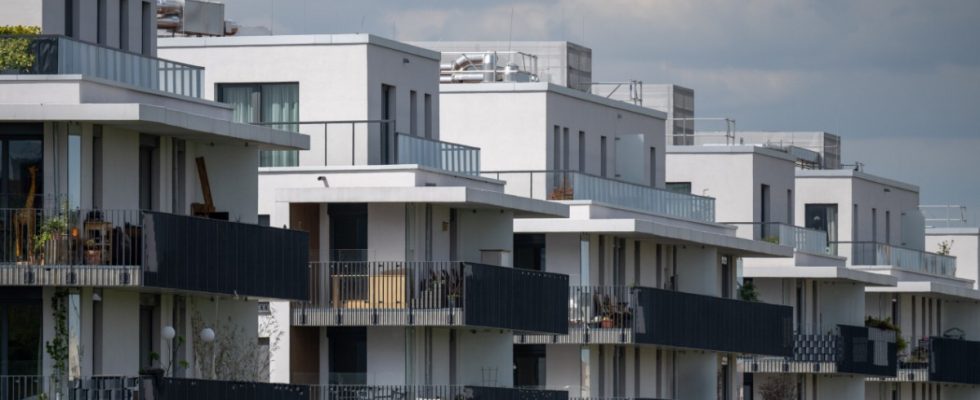Olaf Scholz has so far failed with a key campaign promise. 400,000 new apartments per year, 100,000 of them publicly funded, is how he advertised all over the country in 2021. The reasons may be varied, but the chancellor was not able to deliver here. The turnaround in interest rates, the increased construction and material costs due to inflation, the lack of skilled workers, these are certainly factors that were not foreseeable. Added to this are the increased energy costs, the many requirements, also in terms of climate protection, which also cause the ancillary costs to continue to rise.
And so the SPD is again resorting to an instrument that they are always happy to pull out when the need is great and that sounds like energy: a nationwide rent freeze. The parliamentary group is calling for rents in residential areas with high rents and too little living space to increase by a maximum of six percent in three years and not to exceed the local comparative rent. So far, there has been an increase limit of 20 percent in three years, for tense residential areas of 15 percent.
Another coalition dispute is foreseeable, as shown by Secretary General Kevin Kühnert’s attacks on the responsible Minister of Justice, Marco Buschmann (FDP). Because agreed in the traffic light coalition agreement is that the cap in areas with particularly high rents should be lowered to a maximum of eleven percent in three years, no more. The suggestion has little chance of success and is an expression of one’s own helplessness and lack of success. A construction ministry was created, but the successes of Minister Klara Geywitz, a Scholz confidante, have so far been manageable.
Excessive interventions are counterproductive
Above all, however, the large-scale experiment in Berlin with a rigid rent cap has shown that excessive intervention is counterproductive. New construction is falling drastically, hardly anyone is moving, the housing supply is becoming scarcer and it is becoming almost impossible for newcomers to find a reasonably affordable apartment. If builders constantly fear that political intervention will change the framework conditions, they would rather not make an investment. And so, in the worst case, the SPD torpedoes its own goal of hundreds of thousands of new apartments a year.
What makes sense in the SPD proposal is that the coalition should at least deal with the problem of index rents, which are linked to the inflation rate and have led to large increases. But in the medium term, only an expansion of the offer will help against the misery, which is increasingly becoming a social issue when far more than a third of the income is spent on housing. That was also the mantra of the Scholz election campaign. And so the SPD proposal ultimately works like a smoke screen.
In view of the poor framework conditions, more government investment in the double-digit billion range is needed to create more affordable living space and a turn towards more social housing. And here the coalition finds itself in a dilemma that can hardly be resolved due to the need to save and the goal of sticking to the debt brake.
In the past, a skilled worker could still afford to own property, but even with high incomes, buying property is no longer a sure-fire success, so that often the only thing that remains is renting – at very high costs. Every attempt at reform to create new incentives has failed so far. The federal states, for example, are blocking the reduction or abolition of the real estate transfer tax, which is between 3.5 and 6.5 percent of the purchase price, depending on the federal state, because of the billions in revenue that would otherwise collapse for them.
Instead of fighting here in the coalition and presenting proposals that are not a fundamental solution, it would take a big hit together with the federal states – including new models of property acquisition, low-interest loans depending on income and subsidy bonuses for builders that make affordable rents possible. That would be a real traffic light reform project that could also help the chancellor regain confidence. Because he will still have to be measured by his promises.

